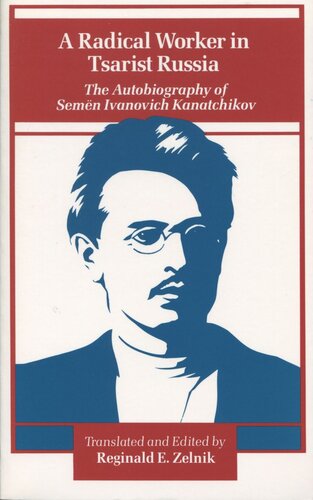

Most ebook files are in PDF format, so you can easily read them using various software such as Foxit Reader or directly on the Google Chrome browser.
Some ebook files are released by publishers in other formats such as .awz, .mobi, .epub, .fb2, etc. You may need to install specific software to read these formats on mobile/PC, such as Calibre.
Please read the tutorial at this link: https://ebookbell.com/faq
We offer FREE conversion to the popular formats you request; however, this may take some time. Therefore, right after payment, please email us, and we will try to provide the service as quickly as possible.
For some exceptional file formats or broken links (if any), please refrain from opening any disputes. Instead, email us first, and we will try to assist within a maximum of 6 hours.
EbookBell Team

0.0
0 reviewsSemën Kanatchikov, born in a central Russian village in 1879, was one of the thousands of peasants who made the transition from traditional village life to the life of an urban factory worker in Moscow and St. Petersburg in the last years of the nineteenth century. Unlike the others, however, he recorded his personal and political experiences (up to the even of the 1905 Revolution) in an autobiography. First published in the Soviet Union in the 1920s, this memoir gives us the richest and most thoughtful firsthand account we have of life among the urban lower classes in Imperial Russia. We follow this shy but determined peasant youth's painful metamorphosis into a self-educated, skilled patternmaker, his politicization in the factories and workers' circles of Moscow and St. Petersburg, and his close but troubled relations with members of the liberal and radical intelligentsia. Kanatchikov was an exceptionally sensitive and honest observer, and we learn much from his memoirs about the day-to-day life of villagers and urban workers, including such personal matters as religious beliefs, family tensions, and male-female relationships. We also learn about conditions in the Russian prisons, exile life in the Russian Far North, and the Bolshevik-Menshevik split as seen from the workers' point of view.